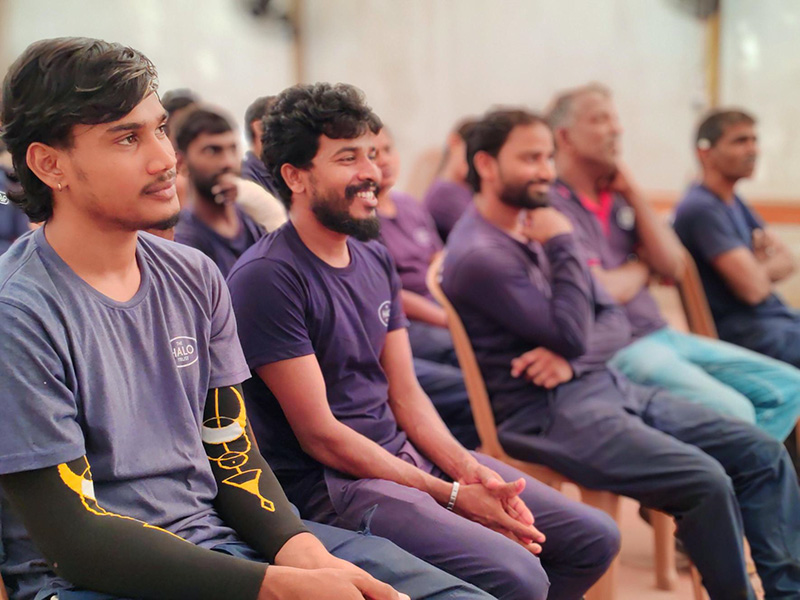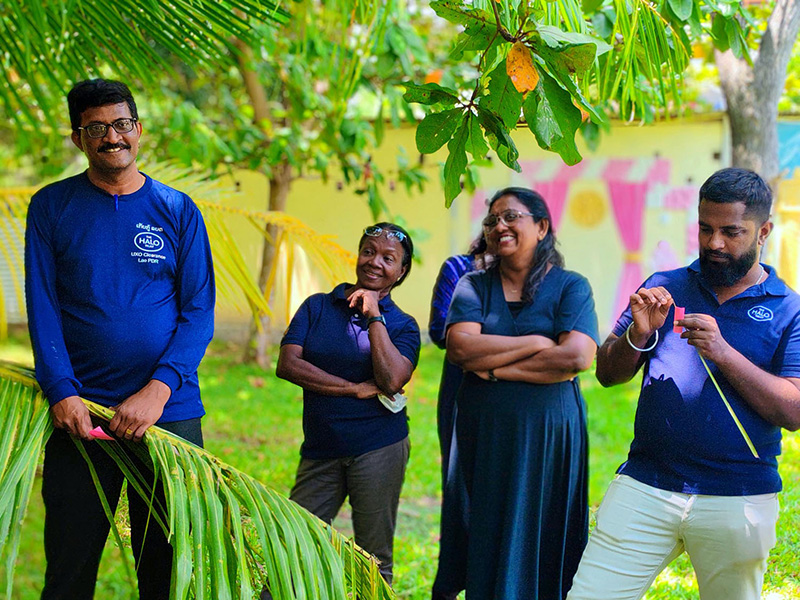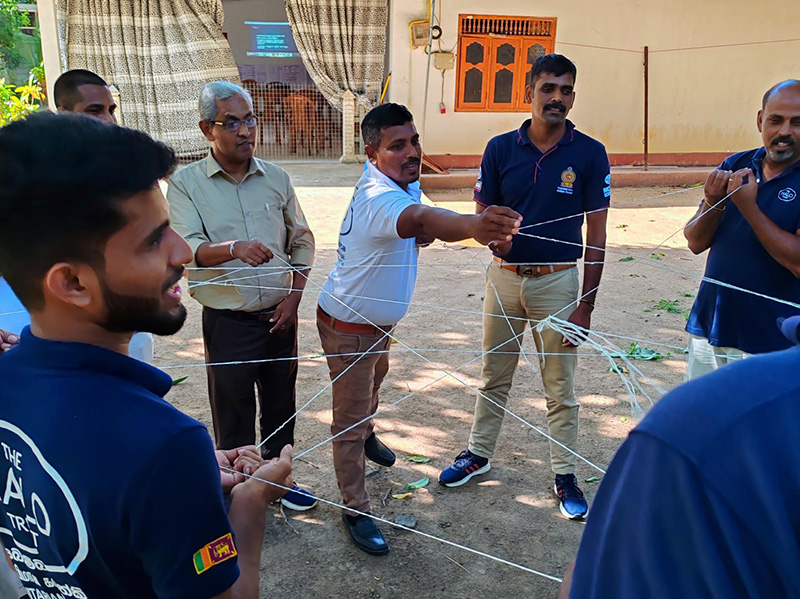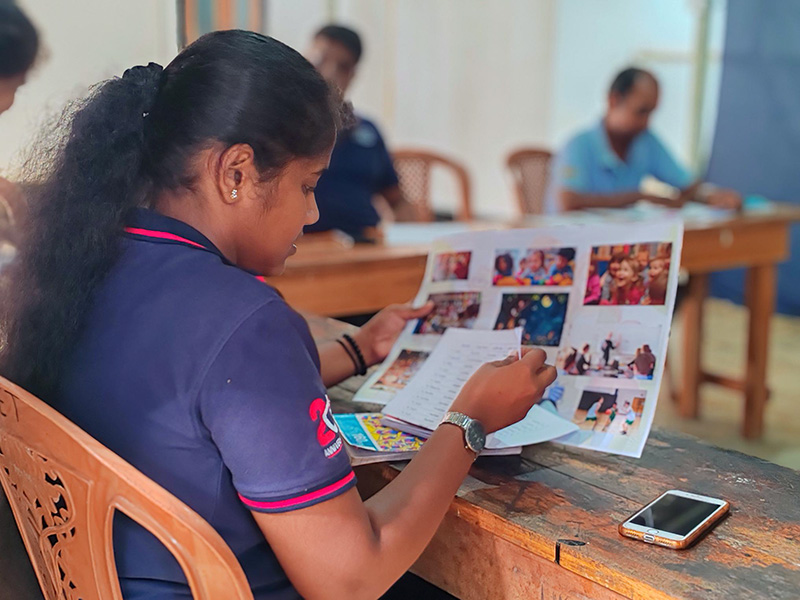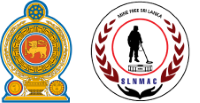Our Activities
Phase 1 Interventions
All four mine action operators (MAG, HALO, DASH, and SHARP) have initiated staff transition activities supported by their respective donors, each with a dedicated team overseeing the process within their respective organizations. As clearance operations continue at full capacity, Phase 1 interventions are currently being implemented with a gender-sensitive approach to enhance the readiness of male and female deminers and foster income diversification while they remain employed. Key interventions include:
The Financial Literacy Training assists demining staff in optimizing the use of their monthly salary, improving personal finance management, making informed financial decisions based on available options, and planning for the future. The training covers topics such as savings, loan and debt management, budgeting, insurance and access to financial service providers. Individual financial counseling is also offered to provide tailored support to those in need.
Service Provider: IDEAs Consultancy
Achievement: By December 2023, 1,630 staff members have benefited from this intervention.
The Tamil Literacy Classes support staff with low literacy in Tamil (their mother tongue) in improving their reading and writing skills, enabling them to better manage their daily lives and access internal promotions and broader opportunities once the mine action programme concludes.
Service Provider: Resource Trainers from the Zonal Education Offices in the Districts of Kilinochchi and Vavuniya
Achievement: By December 2023, 81 staff members from MAG and HALO have benefited from this intervention.
The Spoken Sinhala Training equips Tamil-speaking staff with proficiency in Sinhala, the primary language of the country, enhancing their ability to communicate effectively. This proficiency not only boosts their confidence but also expands their prospects for securing employment and pursuing business opportunities both within and beyond the Northern and Eastern Provinces. Starting early is important as language training requires time to achieve proficiency.
Service Provider: The Legend Institute
Achievement: By December 2023, 268 staff members from MAG have benefited from this intervention.
The English Skills Training equips them with the language fluency needed for effective communication in their current workplace and future endeavors, enhancing career opportunities and supporting professional development locally and internationally. Starting early is important as language training requires time to achieve proficiency.
Service Provider: University of Vavuniya (MAG); International Staff from the organisation (HALO); DMI (SHARP)
Achievement: By December 2023, 209 staff members from MAG, HALO and SHARP have benefited from this intervention.
The Orientation Programme provides an overview of services offered by the Department of Agriculture and Department of Animal Production & Health in staff members' residential districts and aims to explore opportunities for deminers to engage in commercial farming or small businesses for secondary source of income.
Service Provider: Department of Agriculture and Department of Animal Production & Health
Achievement: By December 2023, 583 staff members from MAG and SHARP have benefited from this intervention.
The ICT Skills Training equips staff with essential competencies in basic computer operations, MS Office applications (Word, Excel, PowerPoint, Outlook), communication tools like Zoom and Microsoft Teams, internet navigation skills, and basic computer repair and maintenance, enabling them to effectively use technology in professional and personal contexts.
Service Provider: CINEC Campus
Achievement: By December 2023, 75 staff members from MAG have benefited from this intervention.
The mobility support program assists staff, particularly women and persons with disabilities, in obtaining a riding license to enhance their mobility and safety. This initiative aims to empower them by facilitating access to private transportation, thereby improving their independence, access to opportunities, and overall quality of life.
Service Provider: Department of Motor Traffic
Achievement: By December 2023, 51 staff members from MAG and SHARP have benefited from this intervention.
The empowerment program aims to develop essential soft skills such as confidence building, motivation, time management, emotional intelligence, and stress management among female demining staff who typically have less work experience compared to their male counterparts. These skills are important for helping female deminers navigate the unique challenges of working in a predominantly male-dominated industry.
Service Provider: University of Vavuniya
Achievement: By December 2023, 23 female demining staff from MAG have benefited from this intervention.
The Mental Health & Psychosocial Support (MHPSS) program promotes well-being, resilience, and positive coping mechanisms among the demining workforce, addressing potential distress and trauma in light of the socio-economic and past conflict context of the Northern and Eastern Provinces.
Service Provider: MAG Safeguarding Department & Family Rehabilitation Centre (MAG); Kilinochchi Medical Association (HALO); Government Counselors (SHARP)
Achievement: By December 2023, all 800+ operations staff members from MAG, along with 93 staff members from HALO and 202 staff members from SHARP, have benefited from this intervention.
MAG conducted leadership training for 39 staff members with the support of the University of Vavuniya. SHARP organized an awareness program on labor regulations for 35 staff members in collaboration with the Department of Labour, and another awareness program on communicable and non-communicable diseases for 156 staff members with support from the Ministry of Health.
Phase 2 Interventions
MAG, with technical assistance from Kiwikaha Learning, developed a 12-week fast-track training scheme embedded in a project-type environment, pending NVQ Level 3 accreditation, to facilitate the transition of the demining workforce into three high-demand construction-related occupations: painter (building), tiler, and construction equipment operator.
This initiative was developed in collaboration with MAGA and Sanken/STAM, two major construction companies, and key government stakeholders including the Tertiary Vocational Education Commission (TVEC), the National Apprenticeship and Industrial Training Authority (NAITA), the Vocational Training Authority (VTA), and the Construction Industry Development Authority (CIDA).
Rather than following the traditional pathway of referring staff to existing vocational training courses, which can lead to lengthy transitions and inadequate incentives for retraining, this pilot ‘fast-track’ training scheme aims to first assess the demining workforce’s existing skills and then provide targeted training to acquire the necessary technical competencies. This approach ensures a more tailored and expedited course delivery process.
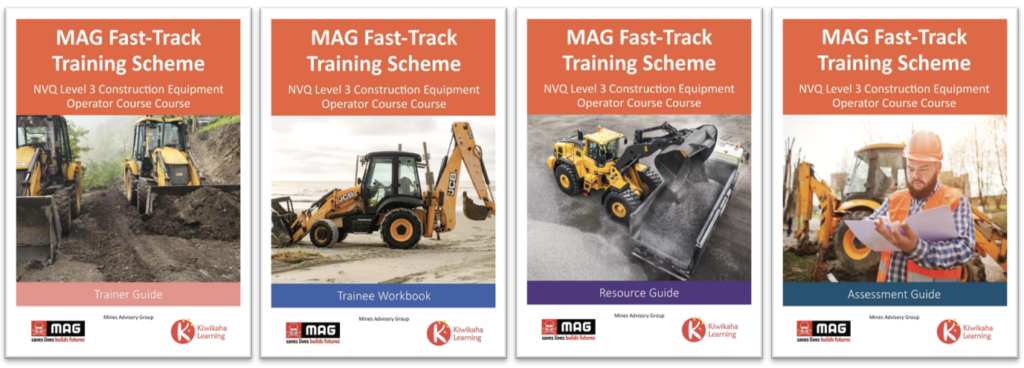
Sector Coordination and Collaboration (facilitated by MAG Livelihood Consultant)
Internal Collaboration
We prioritize sector coordination and knowledge sharing among the mine action operators. Quarterly workshops are held where operators gather to discuss staff transition strategies and share experiences. Exchange visits further facilitate learning and best practice sharing across the sector.
External Engagement
Collaboration with national and local authorities is integral to enhancing visibility and garnering support for the demining workforce transition. Memorandums of Understanding (MoUs) have been established with the Northern Provincial Councils and Eastern Provincial Councils, ensuring local governance involvement and support in our initiatives.
High-Level Engagement
We maintain active dialogue with key ministries at the national level, including Labor & Foreign Employment, Education, Women Affairs, and Youth. High-level meetings are held periodically to align strategies and secure national-level support for the transition of demining personnel into sustainable employment opportunities.
Partnership and Support
Regular interactions with UN agencies, development agencies, and government departments (both national and provincial) are conducted to explore potential partnerships and avenues for support. These collaborations aim to leverage resources and expertise towards a successful transition process for deminers.
